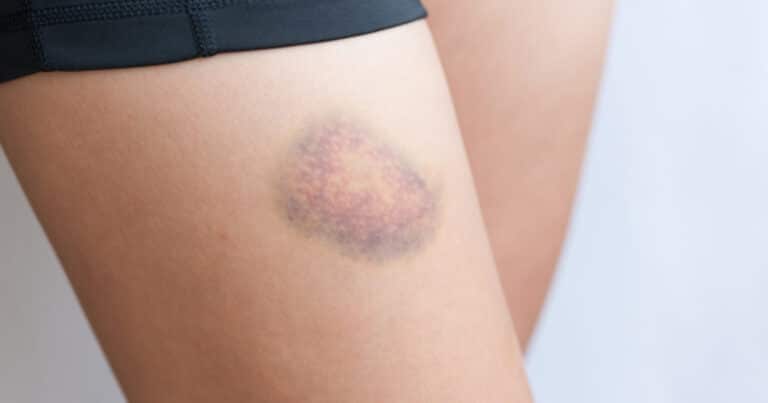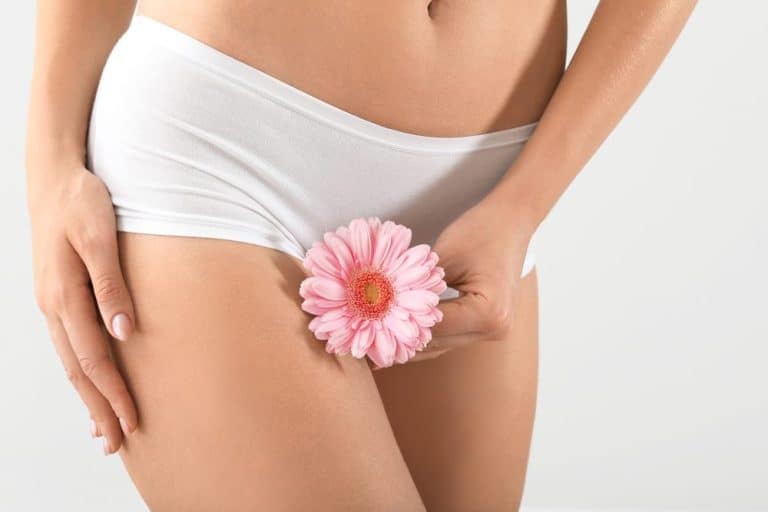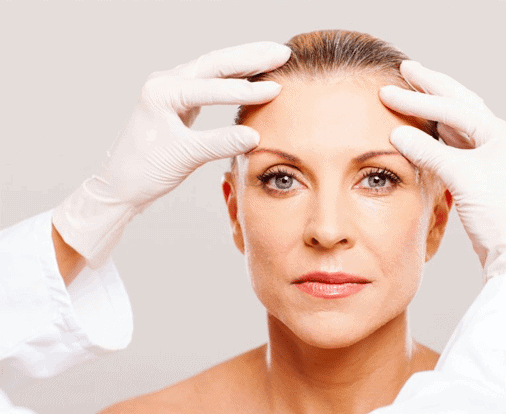The Top 15 Liposuction Recovery Tips – What To Expect After Liposuction
Introduction
At New York Liposuction Center, our goal is to provide the best liposuction experience possible for our patients. We specialize in liposuction and are committed to helping our patients achieve their desired results. Liposuction is a surgical procedure that removes excess fat from specific areas of the body, such as the abdomen, thighs, hips, and arms. It is important to understand both the benefits and risks of liposuction before undergoing the procedure. Additionally, it is essential for patients to follow all post-operative instructions and tips for a successful recovery. In this blog post, we will discuss 15 liposuction recovery tips to help ensure a safe and successful recovery process.
Tip #1: Follow all post-operative instructions
After undergoing liposuction, it is important to follow all post-operative instructions provided by your doctor. These instructions will vary depending on the type of procedure you had and the area that was treated. Generally, these instructions will include a list of medications to take, activities to avoid, and when to return for follow-up appointments.
Medication Instructions
Your doctor will provide you with a list of medications that should be taken before and after the procedure. This may include antibiotics to prevent infection, pain medications to reduce discomfort, and other medications as needed. It is important to take all prescribed medications as directed in order to ensure a safe and successful recovery.
Activity Restrictions
In addition to taking prescribed medications, your doctor may recommend avoiding certain activities for a set period of time. This may include avoiding strenuous activities such as exercise or lifting heavy objects. Your doctor may also advise avoiding exposure to sun or heat for a set period of time in order to reduce the risk of complications.
Following all post-operative instructions is essential for a successful recovery after liposuction. By following your doctor’s advice, you can ensure that you heal properly and reduce the risk of complications.
Tip #2: Take Prescribed Medications as Directed
After liposuction, your doctor will likely prescribe medications to help reduce swelling and discomfort. It’s important to take these medications as directed and not to overuse them. It’s also important to avoid taking any other medications or supplements without first consulting with your doctor.
Pain Relievers
Your doctor may prescribe pain relievers such as ibuprofen or acetaminophen to help reduce swelling and discomfort. These medications can be taken as needed for pain relief, but it’s important to follow the directions on the label and not exceed the recommended dosage. If you experience any side effects from taking these medications, contact your doctor immediately.
Antibiotics
Your doctor may also prescribe antibiotics to help prevent infection after liposuction. These antibiotics should be taken as directed and not stopped until the prescription is finished, even if you feel better before then. If you experience any side effects from taking antibiotics, contact your doctor immediately.
Tip #3: Wear compression garments as recommended
Compression garments are an important part of the liposuction recovery process. They help to reduce swelling, promote healing, and provide additional support to the areas of the body that were treated. Compression garments should be worn for a set period of time, usually two to four weeks, as recommended by your doctor. It is important to wear the garment as instructed and for the full duration of time recommended.
Wearing the Compression Garment
The compression garment should fit snugly but comfortably against your body. If you experience any discomfort or pain while wearing it, contact your doctor right away. Make sure to follow all instructions regarding when and how often to wear the garment, and when it is safe to remove it. It is also important to keep the garment clean and dry at all times.
Benefits of Wearing a Compression Garment
In addition to providing support and reducing swelling, wearing a compression garment can help speed up the healing process after liposuction surgery. The garment helps to reduce fluid build-up in the area, which can lead to better results from the procedure. It can also reduce discomfort and help prevent infection in the area.
Tip #4: Avoid strenuous activities and exercise for a set period of time
It is important to avoid any strenuous activities and exercise for a certain period of time after liposuction. This includes any form of physical activity that could put strain on the body, such as running, weight lifting, or sports. It is recommended to wait at least two weeks before engaging in any sort of physical activity. Additionally, it is important to listen to your body and not push yourself beyond what you are comfortable with.
Why is this important?
Strenuous activities and exercise can put unnecessary strain on the body during the recovery process. This can cause complications such as increased swelling, pain, and possible bleeding at the incision sites. Additionally, it can lead to an increased risk of infection due to the body being weakened from liposuction surgery.
It is important to follow your doctor’s instructions regarding when you can return to exercising and physical activities after liposuction surgery. They will be able to provide you with specific guidance based on your individual situation. Additionally, they may recommend that you take it easy and gradually increase your activity level over time.
Tip #5: Eat Healthy, Nutritious Foods
It is important to eat healthy and nutritious foods during the recovery process. Eating a balanced diet that includes plenty of fruits, vegetables, lean proteins, and whole grains will help promote healing and ensure that your body has the nutrients it needs to recover. Avoid processed and sugary foods, as these can lead to inflammation and slow down the healing process. Additionally, be sure to get enough calories and protein each day to maintain your energy levels. If you are having trouble getting enough calories or protein in your diet, consider supplementing with a meal replacement shake or protein powder.
Tip #6: Stay Hydrated with Plenty of Water
Staying hydrated is key for a successful liposuction recovery. Drinking plenty of water helps to flush out toxins and prevents dehydration, which can lead to further complications. It is recommended that you drink at least 8-10 glasses of water per day during your recovery period. Additionally, you should avoid drinking any beverages that contain caffeine or alcohol, as they can cause dehydration and interfere with your body’s natural healing process.
Benefits of Staying Hydrated
Staying hydrated during your recovery has multiple benefits. Water helps to reduce swelling and bruising, both of which are common side effects of liposuction. It also helps to regulate your body temperature, prevent fatigue, and keep your skin looking healthy. Additionally, it can help to reduce the risk of infection and speed up the healing process.
Tips for Staying Hydrated
If you are having trouble drinking enough water, there are a few tips that can help you stay on track. Start by carrying a reusable water bottle with you throughout the day so that you always have access to water. You can also try adding some fresh fruit or herbs to your water for added flavor and nutrition. Additionally, try to eat foods that are high in water content such as fruits, vegetables, soups, and smoothies.
Tip #7: Avoid exposure to sun and heat for a set period of time
It is important to avoid exposure to the sun and heat after liposuction. Sun exposure can increase the risk of complications such as infection, scarring, and skin discoloration. Additionally, it can cause swelling and discomfort in the affected areas. It is recommended to stay out of direct sunlight for at least two weeks following surgery. It is also important to avoid hot tubs, saunas, steam rooms, and other sources of heat for the same amount of time.
Benefits of avoiding sun and heat
By avoiding sun and heat exposure after liposuction, you can reduce the risk of complications that may arise from excessive exposure. Additionally, this will help ensure that your body has enough time to heal properly before being exposed to any potential irritants. This will also help reduce the risk of infection and other issues that can arise from not following post-operative instructions.
Tips for avoiding sun and heat
If you must go outside during your recovery period, it is important to wear protective clothing such as a wide-brimmed hat and long-sleeved shirt. You should also apply sunscreen with an SPF of at least 30 before going outdoors. Additionally, you should try to stay in the shade whenever possible and limit your time outdoors as much as possible. If you are going to be in a hot environment, it is important to take frequent breaks in a cool area.
Tip #8: Get plenty of rest and sleep
It is important to get plenty of rest and sleep after liposuction. Your body needs time to heal and recover from the surgery, so it is important to make sure you are getting enough sleep each night. During the first few weeks of recovery, it is recommended that you get at least 8 hours of sleep each night. Additionally, try to limit activities that require physical exertion or may cause discomfort during the early stages of your recovery.
Why is Rest Important?
Getting adequate rest and sleep will help your body heal more quickly after surgery. When you are well rested, your body will be able to better focus its energy on healing itself. Additionally, getting enough rest can help reduce stress levels, which can help with the healing process as well.
Tips for Getting Enough Sleep
To ensure that you are getting enough rest after liposuction, there are a few tips you should follow:
- Go to bed at the same time each night
- Avoid caffeine and alcohol in the evenings
- Create a relaxing bedtime routine
- Avoid using electronic devices before bedtime
- Invest in a comfortable mattress and pillows
By following these tips, you can ensure that you are getting enough rest and sleep during your recovery period.
Tip #9: Use Cold Compresses to Reduce Swelling and Discomfort
Using cold compresses can help reduce swelling and discomfort in the days and weeks after liposuction. Cold compresses should be applied for 20 minutes at a time, up to 4-6 times a day. It is important to wrap the cold compress in a towel or cloth before applying it to the skin to prevent damage and injury. Make sure to consult your doctor before using cold compresses, as they may not be recommended for some individuals.
Benefits of Cold Compresses
Cold compresses can help reduce swelling, pain, and bruising after liposuction. They can also help improve circulation and reduce inflammation in the affected area. Additionally, cold compresses can help speed up the healing process and reduce the risk of infection.
Precautions
It is important to follow all instructions given by your doctor when using cold compresses. Do not use cold compresses for more than 20 minutes at a time, as this could cause more harm than good. Additionally, do not apply ice directly to the skin, as this could cause damage or injury.
Tip #10: Take care when showering and bathing after liposuction
It is important to take extra care when showering and bathing after liposuction. Make sure to use lukewarm water, not hot water, as hot water can cause additional swelling. It is also important to avoid scrubbing or rubbing the treated area. Instead, gently pat the area dry with a soft towel. Additionally, it is important to avoid soaking in a bath or swimming in a pool for at least two weeks following surgery. Doing so can introduce bacteria into the wound and increase the risk of infection.
Tip #11: Avoid smoking for at least two weeks after surgery
Smoking can have a negative impact on your recovery from liposuction. It’s important to avoid smoking for at least two weeks after surgery, as the chemicals in cigarettes can interfere with the healing process. Smoking can also increase the risk of complications, such as infection and poor wound healing. Additionally, smoking can cause constriction of the blood vessels, which can reduce oxygen and nutrient delivery to the area being treated.
Why You Should Avoid Smoking After Liposuction
Smoking can impede your body’s ability to heal properly, making it more difficult for you to recover from liposuction. The chemicals in cigarettes can slow down the healing process and make you more susceptible to infection and other complications associated with liposuction. Furthermore, smoking can lead to poor circulation in the area being treated, which can reduce oxygen and nutrient delivery to the area and prevent it from healing properly.
Tip #12: Call your doctor if you have any concerns or questions about your recovery process
It is important to keep in close contact with your doctor during your liposuction recovery process. If you experience any unexpected pain, swelling, redness, or other symptoms, call your doctor as soon as possible. Additionally, if you have any questions or concerns about the recovery process, it is best to call your doctor for advice.
Questions to Ask Your Doctor
When calling your doctor, be prepared with a list of questions to ask. These may include:
- What should I expect in terms of recovery time?
- What kind of activities can I do during my recovery?
- Should I take any additional medications or supplements?
- What should I do if I experience unexpected pain or swelling?
- When can I resume my normal activities?
Tip #13: Attend all follow-up appointments with your doctor
It is important to attend all follow-up appointments with your doctor after liposuction. During these appointments, your doctor will assess your progress and make sure that you are healing properly. Your doctor may also provide additional instructions or advice on how to best manage any side effects you may be experiencing.
Be prepared for follow-up appointments
Before attending a follow-up appointment, it is important to prepare for the visit by gathering information about your recovery process. Make a list of any questions or concerns you have and bring it with you to the appointment. You should also bring along any medications or supplements that you are taking, as well as any recent medical tests or imaging results.
Tip #14: Be patient with yourself during the healing process
The healing process after liposuction can take several weeks, and it is important to be patient and understanding with yourself during this time. It is normal to experience some discomfort and swelling, so it is important to take it easy and allow your body the time it needs to heal properly. Listen to your body and get plenty of rest when needed. If you are feeling overwhelmed or anxious, reach out for support from friends and family members who can help you through this challenging time.
Tip #15: Consider seeking out additional support from friends and family members during your recovery
Recovering from liposuction can be a difficult process, and having the support of those closest to you can make a world of difference. Friends and family members can provide emotional support, help with tasks such as grocery shopping or cleaning the house, and remind you to take your medications or attend follow-up appointments. It is important to have someone you can rely on during this time, so don’t hesitate to reach out for help.
At the new york liposuction center, we understand that liposuction can be a life-changing procedure. That’s why we strive to provide our patients with the best possible care and recovery advice. We hope that these 15 tips have provided you with a better understanding of what to expect during your liposuction recovery process. If you have any questions or concerns about your recovery, please contact us at either of our two locations: 700 Park Avenue, New York, NY, 10021 US or 1155 Northern Boulevard Suite 110, Manhasset, New York, 11030 US. Our team of board-certified plastic surgeons led by Dr. Arnold Breitbart are here to help you throughout your entire journey.





